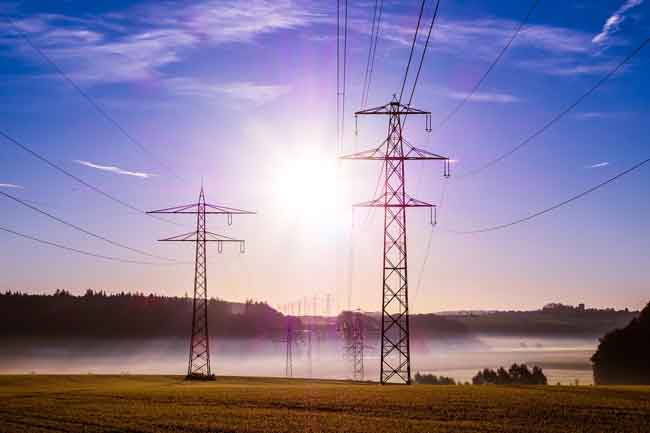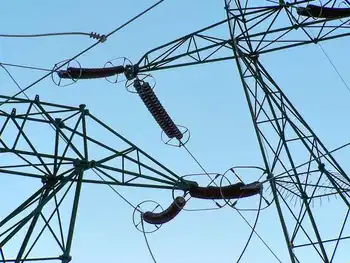Finland Shadow Fleet Cable Investigation details suspected Russia-linked sabotage of Baltic Sea undersea cables, AIS dark activity, and false-flag tactics threatening critical infrastructure, prompting NATO and EU vigilance against hybrid warfare across Northern Europe.
Key Points
Finland probes suspected sabotage of undersea cables by a Russia-linked vessel using flag of convenience and AIS off.
✅ Undersea cable damage in Baltic Sea sparks security alerts
✅ Suspected shadow fleet ship ran AIS dark under false flag
✅ NATO and EU boost maritime surveillance, critical infrastructure
In December 2024, Finland launched an investigation into a ship allegedly linked to Russia’s “shadow fleet” following a series of incidents involving damage to undersea cables. The investigation has raised significant concerns in Finland and across Europe, as it suggests possible sabotage or other intentional acts related to the disruption of vital communication and energy infrastructure in the Baltic Sea region. This article explores the key details of the investigation, the role of Russia’s shadow fleet, and the broader geopolitical implications of this event.
The "Shadow Fleet" and Its Role
The term “shadow fleet” refers to a collection of ships, often disguised or operating under false flags, that are believed to be part of Russia's covert maritime operations. These vessels are typically used for activities such as smuggling, surveillance, and potentially military operations, mirroring the covert hacker infrastructure documented by researchers in related domains. In recent years, the "shadow fleet" has been under increasing scrutiny due to its involvement in various clandestine actions, especially in regions close to NATO member countries and areas with sensitive infrastructure.
Russia’s "shadow fleet" operates in the shadows of regular international shipping, often difficult to track due to the use of deceptive practices like turning off automatic identification systems (AIS). This makes it difficult for authorities to monitor their movements and assess their true purpose, raising alarm bells when one of these ships is suspected of being involved in damaging vital infrastructure like undersea cables.
The Cable Damage Incident
The investigation was sparked after damage was discovered to an undersea cable in the Baltic Sea, a vital link for communication, data transmission, and energy supply between Finland and other parts of Europe. These undersea cables are crucial for everything from internet connections to energy grid stability, with recent Nordic grid constraints underscoring their importance, and any disruption to them can have serious consequences.
Finnish authorities reported that the damage appeared to be deliberate, raising suspicions of potential sabotage. The timing of the damage coincides with a period of heightened tensions between Russia and the West, particularly following the escalation of the war in Ukraine, with recent strikes on Ukraine's power grid highlighting the stakes, and ongoing geopolitical instability. This has led many to speculate that the damage to the cables could be part of a broader strategy to undermine European security and disrupt critical infrastructure.
Upon further investigation, a vessel that had been in the vicinity at the time of the damage was identified as potentially being part of Russia’s "shadow fleet." The ship had been operating under a false flag and had disabled its AIS system, making it challenging for authorities to track its movements. The vessel’s activities raised red flags, and Finnish authorities are now working closely with international partners to ascertain its involvement in the incident.
Geopolitical Implications
The damage to undersea cables and the suspected involvement of Russia’s "shadow fleet" have broader geopolitical implications, particularly in the context of Europe’s security landscape. Undersea cables are considered critical infrastructure, akin to electric utilities where intrusions into US control rooms have been documented, and any deliberate attack on them could be seen as an act of war or an attempt to destabilize regional security.
In the wake of the investigation, there has been increased concern about the vulnerability of Europe’s energy and communication networks, which are increasingly reliant on these undersea connections, and as the Baltics pursue grid synchronization with the EU to reduce dependencies, policymakers are reassessing resilience measures. The European Union, alongside NATO, has expressed growing alarm over potential threats to this infrastructure, especially as tensions with Russia continue to escalate.
The incident also highlights the growing risks associated with hybrid warfare tactics, which combine conventional military actions with cyberattacks, including the U.S. condemnation of power grid hacking as a cautionary example, sabotage, and disinformation campaigns. The targeting of undersea cables could be part of a broader strategy by Russia to disrupt Europe’s ability to coordinate and respond effectively, particularly in the context of ongoing sanctions and diplomatic pressure.
Furthermore, the suspected involvement of a "shadow fleet" ship raises questions about the transparency and accountability of maritime activities in the region. The use of vessels operating under false flags or without identification systems complicates efforts to monitor and regulate shipping in international waters. This has led to calls for stronger maritime security measures and greater cooperation between European countries to ensure the safety and integrity of critical infrastructure.
Finland’s Response and Ongoing Investigation
In response to the cable damage incident, Finnish authorities have mobilized a comprehensive investigation, seeking to determine the extent of the damage and whether the actions were deliberate or accidental. The Finnish government has called for increased vigilance and cooperation with international partners to identify and address potential threats to undersea infrastructure, drawing on Symantec's Dragonfly research for insights into hostile capabilities.
Finland, which shares a border with Russia and has been increasingly concerned about its security in the wake of Russia's invasion of Ukraine, has ramped up its defense posture. The damage to undersea cables serves as a stark reminder of the vulnerabilities that come with an interconnected global infrastructure, and Finland’s security services are likely to scrutinize the incident as part of their broader defense strategy.
Additionally, the incident is being closely monitored by NATO and the European Union, both of which have emphasized the importance of safeguarding critical infrastructure. As an EU member and NATO partner, Finland’s response to this situation could influence how Europe addresses similar challenges in the future.
The investigation into the damage to undersea cables in the Baltic Sea, allegedly linked to Russia’s "shadow fleet," has significant implications for European security. The use of covert operations, including the deployment of ships under false flags, underscores the growing threats to vital infrastructure in the region. With tensions between Russia and the West continuing to rise, the potential for future incidents targeting critical communication and energy networks is a pressing concern.
As Finland continues its investigation, the incident highlights the need for greater international cooperation and vigilance in safeguarding undersea cables and other critical infrastructure. In a world where hybrid warfare tactics are becoming increasingly common, ensuring the security of these vital connections will be crucial for maintaining stability in Europe. The outcome of this investigation may serve as a crucial case study in the ongoing efforts to protect infrastructure from emerging and unconventional threats.
Related News












